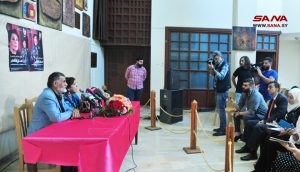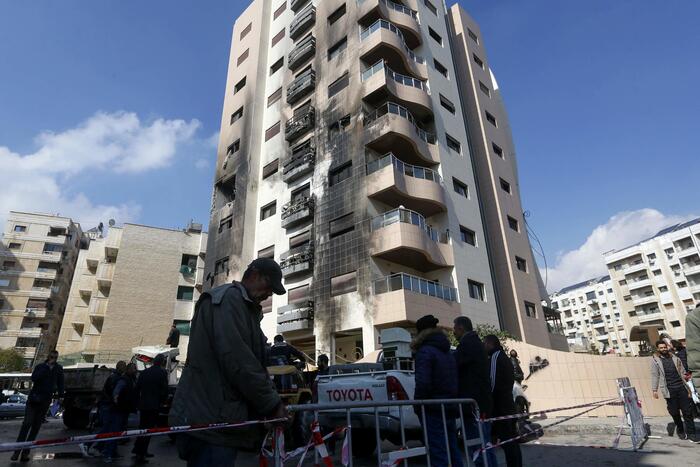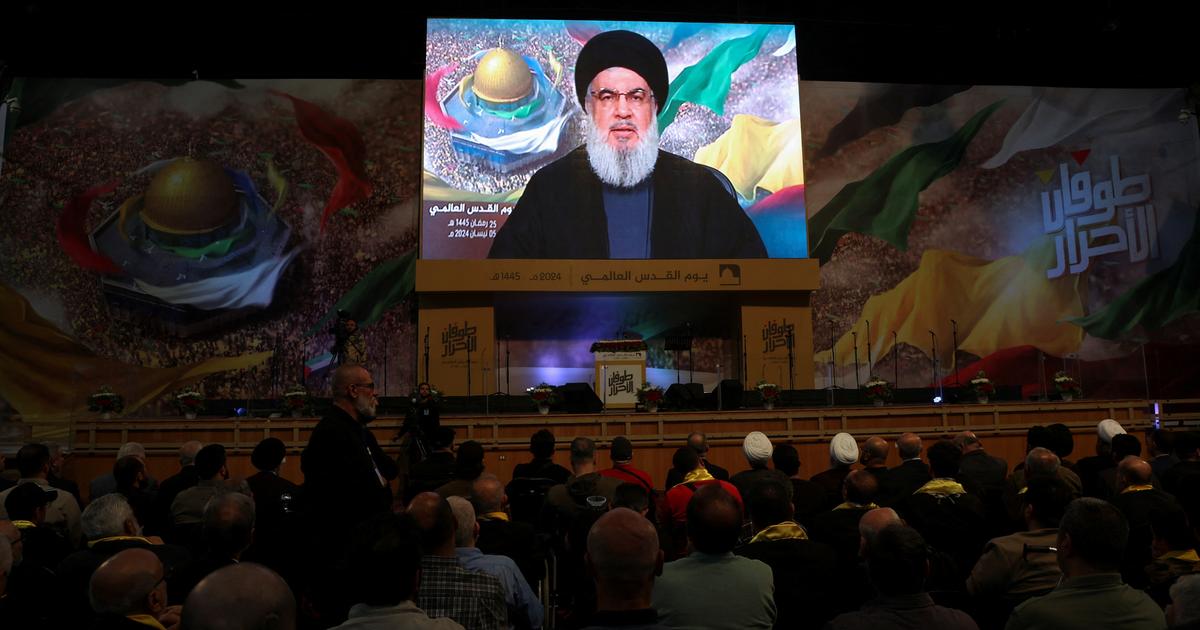Damascus-SANA
The name of the famous Lebanese play, Nidal Al-Ashkar, was associated with the purposeful theater, and it worked for many years
On engraving her name in golden letters on the forehead of the Arab humanist and struggle art. Through her plays, she embodied the concerns of the Arab human being and spoke with his tongue to be chosen by the Higher Institute of Dramatic Arts in Damascus as a distinguished guest in the Creativity Forum.
On the stage of Saadallah Wannous Theater in Damascus, Al-Ashqar expressed her happiness to be honored in this mighty theater, wishing to present a theatrical performance on its stage that would celebrate her artistic career and creative experience among its teachers and students.
At the beginning of her dialogue, which was moderated by media and critic Saad Al-Qassem, directed the students of the institute by saying: “We theatricals have to make life beautiful days worth living,” stressing that the Higher Institute of Dramatic Arts in Damascus is the most important educational academy that studies acting in the Middle East to train young talents and extract the best from them. .
In her dialogue with the students, the daughter of the Lebanese village of Dik Al-Mahdi moved between the secrets and secrets that made her a theater lady and started from her childhood home, which she considered her first theater, and talked about the role of her family at the beginning of her theatrical life.
Al-Ashqar narrates her beginnings when she was 16 years old, when she was apprenticed by Nada Al-Baroudi, who paved the way for her to world literature and made the foundations of literature in Shakespeare’s books the key to her entry into the world of directing, which she was fond of. The entrances that lead to an integrated theatrical work.
She described the time during which she moved to London in 1960 to the world's most famous "Royal Academy of Dramatic Art" as the golden period, during which she spent the first two years training to adapt the body, imagination, voice, letter exits and the formation of a culture related to the principles and history of world theater.
Al-Ashqar then moved to talk about the importance of developing the capabilities of constructing characters by the body and the details of its movements associated with the requirements of the personality, calling on the students of the Institute to focus on developing their abilities by persuasion to deliver the message through the language spoken by the body before the dialogue, which makes it a crutch that helps her find her way to the recipient.
Then Al-Ashqar introduced the students to the art of improvisation, which depends primarily on understanding the book “Rituals of Signs and Transformations” by the Syrian playwright Saadallah Wannous, then training in an able reading of specific scenes, then bringing up similar scenes from daily life to start improvising by finding the real character and superimposing it on the written character. I bring my tools.
During a press conference, Nidal Al-Ashqar demonstrated the importance of the media in supporting the spread of theater since its inception to introduce valuable and important works, talk about them and criticize them in a constructive manner in order to communicate them to the audience.
Concerning her conversation with the students about Saadallah Wannous’s plays, she said, “In Syria, the most important international writers and playwrights have existed since time immemorial, just as the contemporary Syrian theater was built on the shoulders of a man like Saad Allah Wannous, Mamdouh Adwan and Fawaz Al-Sager,” and recalled his honor in Syria, where she considered that his era would not be repeated.
And about the able artist Duraid Lahham, she said: "No one can take his place," and expressed her desire to participate with him in a theatrical work that brings them together.
In the modern era, she considered the artist Fayez Qazak one of the most important talented artists and directors, stressing the necessity of producing Syrian works for Syrian and Arab writers, noting that the able artist Mona Wasef is a pioneer in acting and has a great representative project.
Concerning the role of art after wars and benefiting from the experience in Syria, she said: “The world gathered to break Syria and they were not able, and the artists must use and archive this deep and painful human experience and create a humanitarian theater that will not be repeated.”
Al-Ashqar considered that theater is receding in the Arab world, wishing there would be new energy in the Syrian theater for a new start stemming from the facts offered by life and the human tragedy that roams the Arab world.
Mays Al Ani and Amani Farrouh
Follow Sana's news on Telegram https://t.me/SyrianArabNewsAgency








